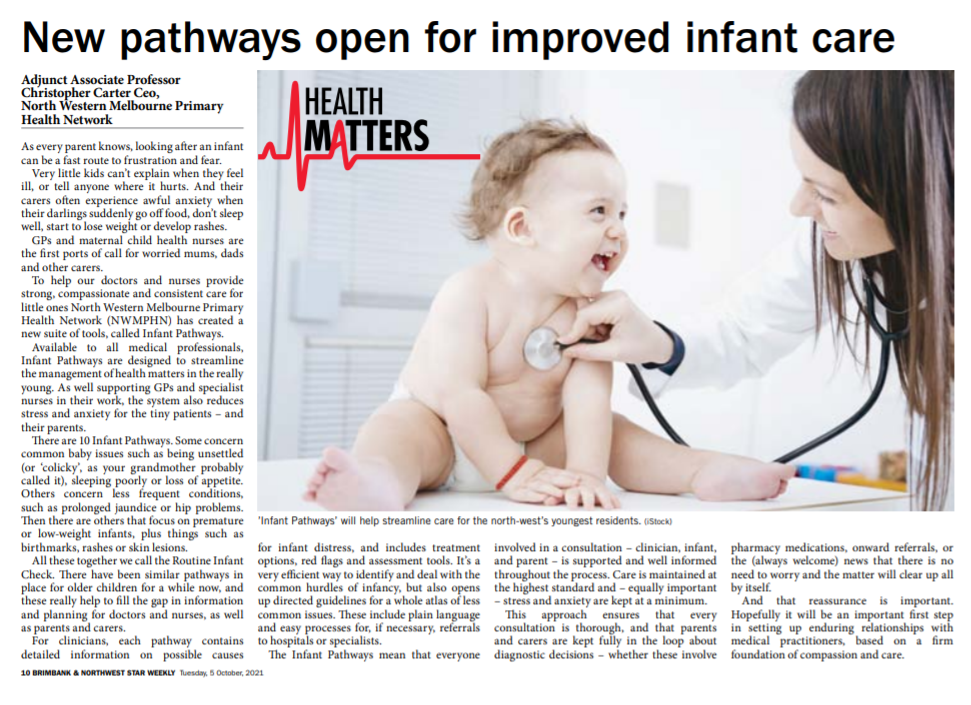
This article was first published in the 5 October edition of the Brimbank & Northwest Weekly.
Written by Christopher Carter, CEO, NWMPHN
As every parent knows, looking after an infant can be a fast route to frustration and fear.
Very little kids can’t explain when they feel ill, or tell anyone where it hurts. And their carers often experience awful anxiety when their darlings suddenly go off food, don’t sleep well, start to lose weight or develop rashes.
GPs and maternal child health nurses are the first ports of call for worried mums, dads and other carers.
To help our doctors and nurses provide strong, compassionate and consistent care for little ones North Western Melbourne Primary Health Network (NWMPHN) has created a new suite of tools, called Infant Pathways.
Available to all medical professionals, Infant Pathways are designed to streamline the management of health matters in the really young. As well supporting GPs and specialist nurses in their work, the system also reduces stress and anxiety for the tiny patients – and their parents.
There are 10 Infant Pathways. Some concern common baby issues such as being unsettled (or ‘colicky’, as your grandmother probably called it), sleeping poorly or loss of appetite. Others concern less frequent conditions, such as prolonged jaundice or hip problems. Then there are others that focus on premature or low-weight infants, plus things such as birthmarks, rashes or skin lesions.
All these together we call the Infant Routine Check. There have been similar pathways in place for older children for a while now, and these really help to fill the gap in information and planning for doctors and nurses, as well as parents and carers.
For clinicians, each pathway contains detailed information on possible causes for infant distress, and includes treatment options, red flags and assessment tools. It’s a very efficient way to identify and deal with the common hurdles of infancy, but also opens up directed guidelines for a whole atlas of less common issues. These include plain language and easy processes for, if necessary, referrals to hospitals or specialists.
The Infant Pathways mean that everyone involved in a consultation – clinician, infant, and parent – is supported and well informed throughout the process. Care is maintained at the highest standard and – equally important – stress and anxiety are kept at a minimum.
This approach ensures that every consultation is thorough, and that parents and carers are kept fully in the loop about diagnostic decisions – whether these involve pharmacy medications, onward referrals, or the (always welcome) news that there is no need to worry and the matter will clear up all by itself.
And that reassurance is important. Hopefully it will be an important first step in setting up enduring relationships with medical practitioners, based on a firm foundation of compassion and care.




